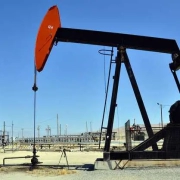Managing oil and gas royalties in a declining market
The oil and gas industry is often characterized by its volatile nature, with prices and demand fluctuating due to a myriad of factors including geopolitical tensions, technological advancements, and shifts in energy policy. In recent years, the market has seen a significant decline, presenting unique challenges for stakeholders, particularly those managing oil and gas royalties. This article explores the various aspects of managing oil and gas royalties in a declining market, highlighting strategies, economic implications, legal considerations, and future prospects.
Understanding the Dynamics of Oil and Gas Royalties
Oil and gas royalties are payments made to the owners of mineral rights (often landowners or government entities) by companies that extract these resources. These payments are typically a percentage of the revenue generated from the sale of the extracted oil and gas. The value of these royalties is directly tied to market prices, production levels, and the terms of the lease agreements.
Factors Influencing Oil and Gas Royalties
Several key factors influence the calculation and management of oil and gas royalties:
Market Prices: The primary factor affecting royalty payments is the market price of oil and gas. When prices are high, royalty payments increase; conversely, when prices decline, royalty payments decrease.
Production Volumes: The amount of oil and gas produced from a well also impacts royalty payments. Higher production levels result in higher royalties.
Lease Terms: The specific terms of the lease agreement, including the royalty rate, deductions, and payment schedules, play a significant role in determining the amount of royalties paid.
Challenges in a Declining Market
In a declining market, managing oil and gas royalties becomes increasingly complex due to several challenges:
Reduced Revenue: Lower market prices and production volumes lead to reduced revenue for both the operators and the royalty owners.
Operational Costs: Despite declining revenues, operational costs for extraction and production often remain high, squeezing profit margins.
Regulatory Changes: Fluctuating market conditions often prompt regulatory changes, which can impact royalty agreements and tax obligations.
Lease Renegotiations: In a declining market, there may be increased pressure to renegotiate lease terms to reflect the new economic realities.
Strategies for Managing Oil and Gas Royalties
Effectively managing oil and gas royalties in a declining market requires a strategic approach that balances immediate financial needs with long-term sustainability. Here are several strategies that can help:
Diversification of Revenue Streams
Relying solely on oil and gas royalties can be risky, especially in a declining market. Diversifying revenue streams by investing in other sectors, such as renewable energy, real estate, or other mineral rights, can provide a buffer against market volatility.
Optimizing Lease Agreements
Renegotiating lease terms can help optimize royalty payments. This might include adjusting royalty rates, implementing sliding scale royalties that vary with market prices, or revising cost deductions to ensure fair compensation.
Enhancing Production Efficiency
Improving production efficiency can help maintain revenue levels even in a declining market. This can be achieved through the adoption of advanced extraction technologies, better resource management, and reducing operational costs.
Legal and Tax Planning
Engaging in proactive legal and tax planning is crucial for managing oil and gas royalties. This includes understanding and complying with regulatory changes, optimizing tax obligations, and ensuring that lease agreements are legally sound and enforceable.
Leveraging Technology and Data Analytics
Technology and data analytics play a pivotal role in managing oil and gas royalties. Utilizing data analytics to monitor market trends, production levels, and revenue streams can provide valuable insights for decision-making and strategic planning.
Economic Implications of Declining Oil and Gas Markets
The economic implications of a declining oil and gas market are profound, affecting not only the immediate stakeholders but also the broader economy. Understanding these implications is essential for effective royalty management.
Impact on Revenue and Investment
Declining market prices result in reduced revenue for both operators and royalty owners, leading to decreased investment in exploration and production activities. This can create a negative feedback loop, where reduced investment further suppresses production and market prices.
Employment and Community Impact
The oil and gas industry is a significant source of employment and economic activity in many regions. A declining market can lead to job losses, reduced economic activity, and negative impacts on local communities that rely on the industry for their livelihoods.
Fiscal Policies and Government Revenue
Governments often rely on royalties and taxes from the oil and gas industry as a significant source of revenue. A decline in market prices can reduce government revenue, impacting public services and fiscal policies.
Legal Considerations in Managing Royalties
The legal landscape surrounding oil and gas royalties is complex and varies by jurisdiction. Effective management requires a thorough understanding of legal considerations and compliance requirements.
Lease Agreement Enforcement
Ensuring that lease agreements are enforceable and legally sound is critical. This includes clearly defining royalty rates, payment schedules, and deductions, as well as addressing potential disputes and mechanisms for resolution.
Regulatory Compliance
Compliance with regulatory requirements is essential to avoid legal disputes and penalties. This includes adhering to environmental regulations, reporting obligations, and tax laws.
Intellectual Property and Technology Use
As technology plays an increasingly important role in the industry, understanding the legal implications of intellectual property and technology use is crucial. This includes securing patents, licensing agreements, and ensuring compliance with data protection laws.
Future Prospects and Adaptation
The future of oil and gas royalties in a declining market is uncertain, but there are opportunities for adaptation and resilience. Embracing innovation, diversification, and sustainable practices can help navigate the challenges and seize new opportunities.
Transition to Renewable Energy
The global shift towards renewable energy presents both challenges and opportunities for the oil and gas sector. Diversifying investments into renewable energy projects can provide new revenue streams and reduce dependency on oil and gas royalties.
Sustainable Practices
Adopting sustainable practices in oil and gas production can enhance efficiency and reduce environmental impact. This includes investing in carbon capture and storage technologies, reducing methane emissions, and promoting sustainable resource management.
Strategic Partnerships and Collaboration
Collaborating with other stakeholders, including government entities, technology providers, and local communities, can enhance resilience and create new opportunities. Strategic partnerships can facilitate knowledge sharing, innovation, and sustainable development.
Managing oil and gas royalties in a declining market is a multifaceted challenge that requires strategic planning, legal acumen, and adaptability. By diversifying revenue streams, optimizing lease agreements, enhancing production efficiency, and embracing sustainable practices, stakeholders can navigate the complexities of a volatile market. Understanding the economic, legal, and technological implications is essential for making informed decisions and ensuring long-term sustainability. As the global energy landscape continues to evolve, those who proactively adapt to the changing dynamics will be best positioned to thrive in the future.
If you have any questions or thoughts about the topic related to managing oil and gas royalties, feel free to contact us here or leave a comment below.












Leave a Reply
Want to join the discussion?Feel free to contribute!